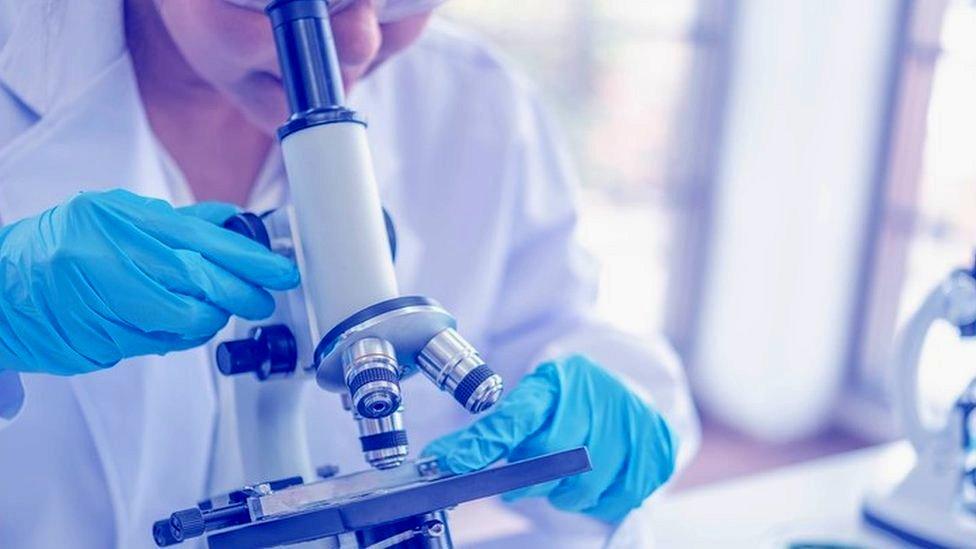Major deal for AI drug discovery firm Exscientia
- Published

A Dundee University spin-out firm which uses artificial intelligence (AI) to speed up drug discovery has entered a multi-million pound partnership with a US biopharma company.
Under the deal, Exscientia will work on three therapeutic programmes for Celgene in the areas of oncology and autoimmunity.
Exscientia will receive an initial $25m (拢19m) upfront payment from Celgene.
It will also receive royalties on sales that result from the collaboration.
Exscientia said a key goal of the partnership was to apply AI to improve the speed of delivery of new treatments for patients.
The collaboration will see Exscientia use its Centaur Chemist AI drug discovery platform, which it says can greatly reduce the time it takes to discover pre-clinical drug candidates.
The deal extends Exscientia's list of partnerships with blue-chip pharma and biotech companies, with existing collaborations involving Roche, GSK, Sanofi and Evotec.
Chief executive Andrew Hopkins says the pharmaceutical industry's R&D productivity needs to "dramatically improve"
At the start of this year, Exscientia - which has bases in Dundee and Oxford - raised $26m (拢19.7m) in a financing round to help it expand its capabilities, develop its platform and build its proprietary drug pipeline.
Chief executive Prof Andrew Hopkins, who holds a chair of Medicinal Informatics in the School of Life Sciences at Dundee, said: "Today, patients can wait more than 10 years from initial drug discovery to its availability as a treatment.
"With autoimmune diseases and cancer rates increasing, the pharmaceutical industry's R&D productivity needs to dramatically improve - and technology is a key part of this."